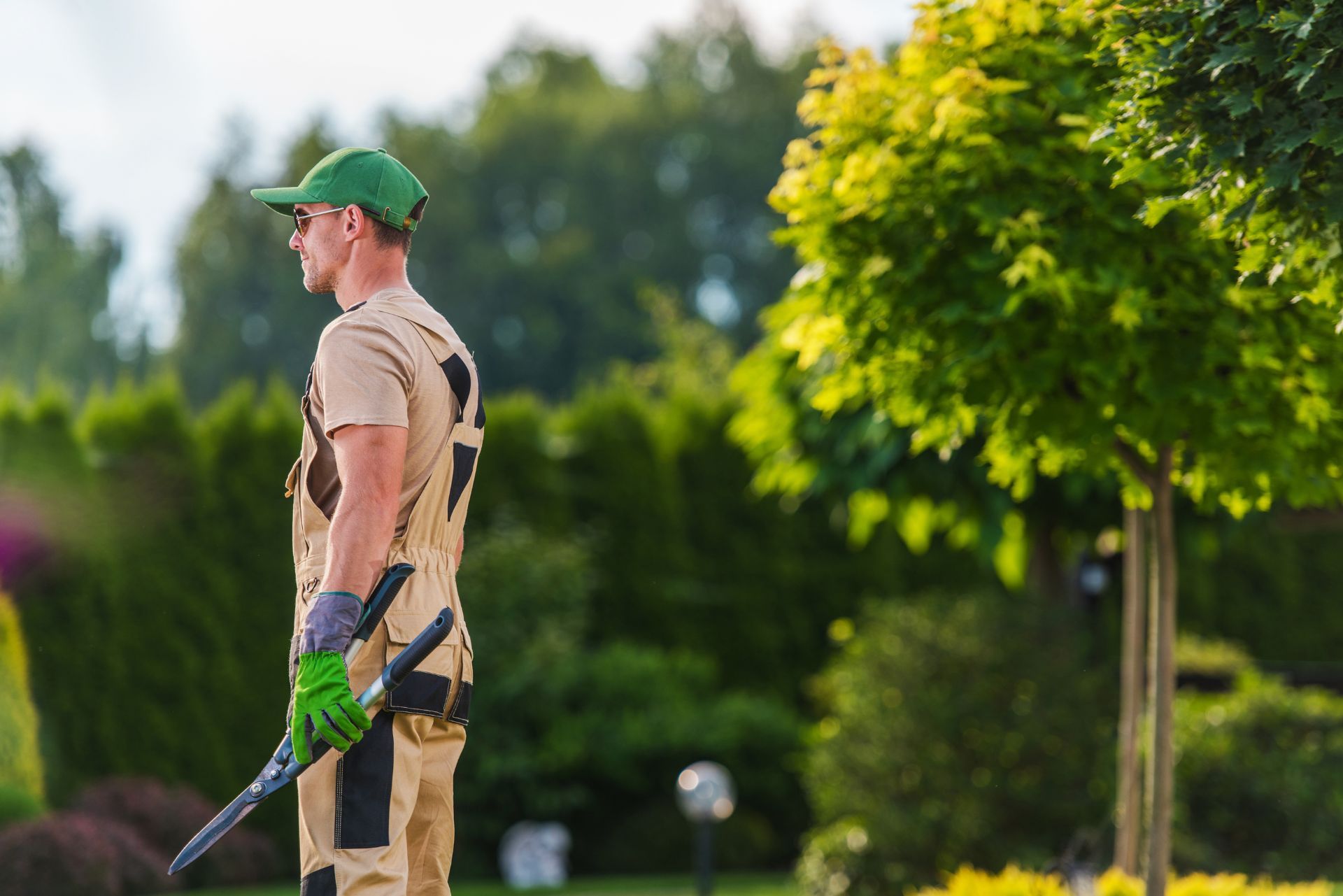Operating a landscaping business in Florida comes with its own set of challenges and responsibilities. One of the most critical aspects of running a successful landscaping company is ensuring that it is adequately protected. This is where Florida landscaper insurance becomes essential. This article will delve into the various types of insurance available, the importance of coverage, and what every landscaper in Florida should know.
Understanding the Basics of Landscaper Insurance
Landscaper insurance is designed to protect landscaping businesses from various risks associated with their operations. This type of insurance can cover everything from property damage to liability claims, ensuring that business owners can focus on their work without the constant worry of potential financial pitfalls. With the landscaping industry being inherently unpredictable, having comprehensive insurance is not just a safety net; it’s a crucial part of a well-rounded business strategy that can help foster growth and stability.
Types of Landscaper Insurance
There are several types of insurance policies that landscaping businesses should consider. Each type offers different coverage options tailored to the unique risks faced by landscapers. Understanding these options can help business owners make informed decisions that align with their specific needs and the nature of their work, ultimately safeguarding their investments and livelihoods.
General Liability Insurance
General liability insurance is a fundamental coverage for any landscaping business. It protects against claims of bodily injury, property damage, and personal injury that may arise during the course of business operations. For instance, if a client trips over equipment left on their property and sustains an injury, this insurance can help cover legal fees and medical expenses. Additionally, this coverage can also extend to incidents that occur off-site, such as damage caused by a landscaper's work vehicle while parked on a public road. This broad protection is vital in maintaining a professional reputation and ensuring that unforeseen accidents do not derail a business's financial stability.
Commercial Auto Insurance
Landscapers often use vehicles to transport equipment and materials to job sites. Commercial auto insurance is essential for protecting these vehicles and the business owner from liabilities that may arise from accidents while on the road. This coverage typically includes liability, collision, and comprehensive coverage options. Moreover, it can also cover the costs associated with vehicle repairs or replacement in the event of theft or damage, which is particularly important given the high value of landscaping equipment. By investing in commercial auto insurance, landscapers can ensure that their operations remain uninterrupted, even in the face of vehicle-related incidents.
Workers' Compensation Insurance
In Florida, businesses with employees are required to carry workers' compensation insurance. This coverage protects employees who may be injured on the job, covering medical expenses and lost wages. For landscaping businesses, this is particularly important due to the physical nature of the work and the potential for accidents. Beyond compliance with state laws, having workers' compensation insurance can also enhance employee morale and trust, as workers feel more secure knowing that they are protected in case of an injury. It can also help attract quality talent, as potential employees often look for employers who prioritize their safety and well-being. Additionally, this insurance can provide employers with peace of mind, knowing that they are fulfilling their legal obligations while also fostering a safe working environment for their team.

The Importance of Insurance for Landscapers
Having the right insurance coverage is not just a legal requirement; it is also a vital component of risk management for landscaping businesses. The unpredictable nature of outdoor work means that accidents can happen at any time, and without proper insurance, the financial impact can be devastating.
Protecting Your Business Assets
Landscaping businesses invest heavily in equipment, vehicles, and materials. Insurance helps protect these assets from unforeseen events such as theft, vandalism, or damage caused by natural disasters. By having comprehensive coverage, business owners can ensure that they can replace or repair their assets without incurring significant out-of-pocket expenses. Additionally, many landscaping companies rely on specialized machinery, such as lawn mowers, trimmers, and irrigation systems, which can be costly to replace. Without insurance, a single incident could jeopardize the entire operation, leading to delays in service and potential loss of clients.
Building Client Trust
Clients are more likely to hire a landscaping company that is insured. Having insurance demonstrates professionalism and a commitment to protecting both the business and its clients. This can be a significant selling point when competing for contracts, as clients want to know they are working with a responsible and reliable service provider. Furthermore, insured landscapers often have better relationships with their clients, as they can offer peace of mind knowing that any potential mishaps will be handled appropriately. This trust can lead to repeat business and referrals, which are crucial for growth in a competitive industry.
Compliance with Legal Requirements
In Florida, certain types of insurance are legally required for businesses, particularly those with employees. Failing to comply with these regulations can result in hefty fines and legal issues. By ensuring that the necessary insurance policies are in place, landscapers can avoid these complications and focus on their work. Moreover, maintaining compliance not only protects the business from legal repercussions but also enhances its reputation within the community. Clients and partners are more likely to engage with businesses that adhere to legal standards, as it reflects a commitment to ethical practices and accountability.
Mitigating Liability Risks
Liability risks are an inherent part of the landscaping business, where accidents can occur on job sites, potentially leading to injury or property damage. General liability insurance is essential for protecting landscapers against claims that may arise from such incidents. This type of coverage can help cover legal fees, medical expenses, and damages awarded to injured parties. Additionally, landscapers may consider obtaining professional liability insurance, which provides protection against claims of negligence or failure to deliver services as promised. By mitigating these risks, landscapers can operate with greater confidence, knowing they have a safety net in place should the unexpected occur.
Enhancing Employee Safety
Investing in insurance also reflects a commitment to employee safety and well-being. Workers' compensation insurance is often a requirement for businesses with employees, providing coverage for medical expenses and lost wages in the event of a work-related injury. This not only protects the business from lawsuits but also fosters a positive work environment where employees feel valued and secure. A strong safety culture can lead to lower accident rates, which in turn can reduce insurance premiums over time. Moreover, when employees see that their employer prioritizes their safety, it can boost morale and productivity, ultimately benefiting the business as a whole.
Choosing the Right Insurance Provider
With numerous insurance providers available, selecting the right one can be a daunting task. It is crucial to find a provider that understands the unique needs of the landscaping industry and can offer tailored coverage options. The right insurance not only protects your business assets but also provides peace of mind, allowing you to focus on delivering exceptional landscaping services to your clients.
Researching Insurance Companies
Start by researching various insurance companies that specialize in coverage for landscaping businesses. Look for reviews, ratings, and testimonials from other landscapers to gauge the provider's reputation. A company with a solid track record in the industry is more likely to offer reliable service and support. Additionally, consider reaching out to local landscaping associations or forums where professionals share their experiences and recommendations regarding insurance providers. Networking with peers can often lead to discovering hidden gems in the insurance market that cater specifically to your needs.
Comparing Coverage Options
Not all insurance policies are created equal. When comparing providers, pay close attention to the coverage options they offer. Ensure that the policies include all necessary protections for your specific business needs, such as equipment coverage, liability limits, and any additional endorsements that may be beneficial. Furthermore, it’s wise to inquire about the claims process and turnaround times, as these factors can significantly impact your business in the event of an incident. A provider that offers comprehensive coverage with a straightforward claims process can save you time and stress when you need it most.
Consulting with an Insurance Agent
Consulting with an experienced insurance agent can provide valuable insights into the best coverage options for your landscaping business. An agent can help assess your specific risks and recommend policies that offer adequate protection. They can also assist in navigating the complexities of insurance terms and conditions. Moreover, a knowledgeable agent can help you understand the nuances of different policies, such as the distinction between general liability and professional liability insurance, ensuring you have the right mix of coverage to protect your business from various risks. This personalized approach not only helps in securing the best rates but also fosters a long-term relationship that can be beneficial as your business grows and evolves.
Common Risks Faced by Landscaping Businesses
Understanding the risks associated with landscaping work is crucial for selecting the right insurance coverage. Some common risks include:
Accidents and Injuries
Landscaping work often involves heavy machinery and tools, which can lead to accidents and injuries. Whether it's a worker sustaining an injury or a client getting hurt on the property, these incidents can result in costly liability claims. Moreover, the nature of landscaping work often requires employees to work in various weather conditions, which can further increase the likelihood of accidents. For instance, wet or icy conditions can make surfaces slippery, leading to slips and falls. Training employees on safety protocols and providing proper protective gear can help mitigate these risks.
Property Damage
Landscapers frequently work on clients' properties, which increases the risk of causing damage. Whether it's accidentally damaging a sprinkler system or harming existing landscaping, these situations can lead to disputes and financial liability. Additionally, the potential for property damage is not limited to the immediate work area; landscaping projects can inadvertently affect surrounding structures or landscapes, such as tree roots damaging sidewalks or foundations. Clear communication with clients about potential risks and obtaining written consent can be beneficial in managing expectations and protecting the business from liability claims.
Equipment Theft and Damage
Landscaping equipment is often expensive and can be a target for theft. Additionally, equipment can be damaged during transportation or while in use. Having insurance that covers equipment loss or damage is vital to maintaining business operations. Furthermore, investing in security measures, such as GPS tracking for equipment or secure storage solutions, can help reduce the risk of theft. Regular maintenance checks can also prevent equipment failure during critical jobs, ensuring that the business can operate smoothly without unexpected downtime.
Cost of Landscaper Insurance in Florida
The cost of landscaper insurance can vary significantly based on several factors, including the size of the business, the types of coverage selected, and the level of risk associated with the operations.
Factors Influencing Insurance Premiums
Several factors can impact the cost of insurance premiums for landscaping businesses. These include:
- Business Size: Larger businesses with more employees and equipment may face higher premiums due to increased risk.
- Location: The geographical area of operation can influence rates, as certain regions may have higher crime rates or natural disaster risks.
- Claims History: A history of previous claims can lead to higher premiums, as insurers may view the business as a higher risk.
Average Costs
On average, landscapers in Florida can expect to pay anywhere from $500 to $2,500 annually for general liability insurance, depending on the factors mentioned above. Workers' compensation insurance costs can also vary, with rates typically ranging from $1.50 to $3.00 per $100 of payroll.
Ways to Save on Insurance Costs
Landscapers can take several steps to reduce their insurance costs, including:
- Bundling Policies: Many insurance companies offer discounts for bundling multiple policies, such as general liability and commercial auto insurance.
- Improving Safety Practices: Implementing safety training and protocols can reduce the likelihood of accidents, potentially lowering premiums.
- Shopping Around: Regularly comparing quotes from different insurance providers can help ensure that you are getting the best rates and coverage options.

Claims Process for Landscaper Insurance
Understanding the claims process is essential for any landscaping business. Knowing how to navigate this process can make a significant difference when an incident occurs.
Reporting an Incident
In the event of an accident or damage, the first step is to report the incident to the insurance provider as soon as possible. Most companies have specific guidelines for reporting claims, so it's essential to follow these procedures to ensure a smooth process.
Documentation
Gathering documentation is a critical part of the claims process. This may include photographs of the incident, witness statements, and any relevant contracts or agreements. Providing thorough documentation can help expedite the claims process and ensure a fair assessment.
Working with Adjusters
After a claim is filed, an insurance adjuster will typically be assigned to assess the situation. It is crucial to cooperate with the adjuster and provide any additional information they may require. The adjuster will evaluate the claim and determine the appropriate compensation based on the policy terms.
Frequently Asked Questions about Florida Landscaper Insurance
Many landscapers have questions regarding insurance coverage and requirements. Here are some common inquiries:
Is landscaper insurance mandatory in Florida?
While not all types of insurance are mandatory, workers' compensation insurance is required for businesses with employees in Florida. Other types of coverage, such as general liability and commercial auto insurance, are highly recommended to protect against potential risks.
Can I get insurance for my landscaping equipment?
Yes, landscapers can obtain equipment insurance to cover loss or damage to their tools and machinery. This coverage can be included in a general liability policy or purchased as a separate policy.
How can I determine the right amount of coverage for my business?
Determining the right amount of coverage involves assessing the specific risks associated with your business operations. Consulting with an insurance agent can help identify the appropriate coverage limits based on your business size, services offered, and potential liabilities.
Conclusion
Florida landscaper insurance is a vital aspect of running a successful landscaping business. By understanding the various types of coverage available, the importance of insurance, and how to navigate the claims process, landscapers can protect their business and ensure long-term success. Investing in the right insurance not only safeguards assets but also builds trust with clients and ensures compliance with legal requirements. As the landscaping industry continues to grow, having comprehensive insurance coverage will remain a crucial factor in maintaining a thriving business.

Contact Us


